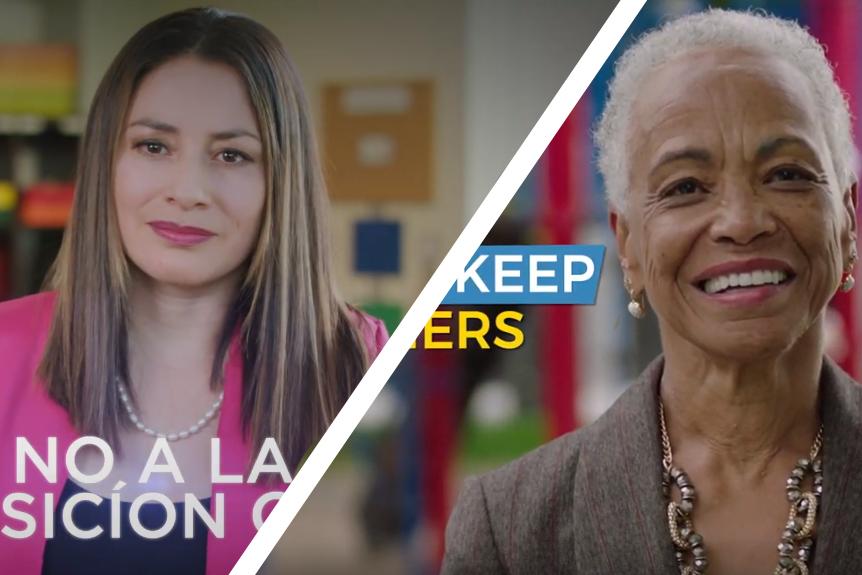
Proponents of Propositions CC and DD spent $2.7 million on advertising in the final weeks before the election, according to campaign finance reports that cover most of October.
If approved, the measures would add hundreds of millions more in state revenue.
CC is the main driver of the big money this election cycle, on both the pro and the con sides. If passed next week, CC would eliminate state revenue limits, which sometimes lead to taxpayer refunds. The Yes on Prop CC campaign has raised a total of $4.3 million this year.
About a quarter of that haul comes from Dan Ritchie, a former communications CEO and chancellor emeritus of the University of Denver. One recent check was cut for $250,000. Other large givers include a mix of rich donors like Pat Stryker and "dark money" groups like Sixteen Thirty Fund which do not publicly disclose the source of their funds.
Trying to keep up is the Vote NO on CC campaign, which is essentially run by the Americans for Prosperity Colorado Issue Committee, a group affiliated with the larger organization founded by the billionaire libertarian Koch brothers.
AFPCIC has spent $1.4 million to defeat a measure they say is tantamount to raising taxes. Money for the group was provided by the parent organization, Americans for Prosperity, which like some of the proponents, is also considered a "dark money" organization. It's unclear what the exact source of the group's campaign cash is.
The Other Big Money Race
Speaking of taxes, Proposition DD would raise a tax on casinos that profit from sports gambling. It would not raise a lot of money, but it would mostly fund water projects around Colorado. If the tax fails Colorado will not allow the mountain casinos to start sports gambling apps and sports books.
Casinos and mobile betting sites like FanDuel have contributed most of the $2.4 million total to pass DD, despite no organized opposition.
Statewide tax votes have a dismal record in Colorado, but sin taxes tend to be more popular. Still, it's not a sure bet because the ballot language is a little confusing, and it's not clear at first this is a tax merely on casinos. Almost all of the significant ad buys try to make clear this is not a tax on everyone.
Registered Republicans have returned more early ballots so far, which conventional political wisdom says is not great news for a pair of tax hikes. But it's still too early to make that call, according to the proponents.
"What happens over the next seven days will determine the outcome on both sides," said Curtis Hubbard, who's firm OnSight Public Affairs handles the 'Yes' side for both CC and DD.
Oil and Gas Goes Local
The American Petroleum Institute is spending big on races like mayor of Greeley and, most curiously, for a town board member in Windsor.
More than $200,000 has been directed in the last couple of weeks to ads and mailers. The money is specifically supporting Dale Hall and Blythe Driver, both running for city council seats in Greeley, and John Gates, running for mayor of Greeley, though the independent expenditures are not coordinated with the campaigns or candidates.
API also bought more than $60,000 in radio ads, apparently supporting Thomas Jones, who currently sits on the town board of Windsor.
Jones said he first noticed the radio ads when his son called to say he heard one. Jones said it's clearly a mistake because the ads are telling people to vote for him Nov. 5, when the next municipal election isn't until April 2020.
Nor is he a staunch oil and gas supporter.
"I'm not anti-oil and gas, but I do have some concerns," Jones said.
He couldn't help but laugh at the confusion the ads have created. Jones hasn't decided yet if he'll even run for his town board seat again.
A representative of API said they have discontinued their ads for Jones and would be amending their campaign finance reports soon.
Ballots must be returned by 7 p.m. next Tuesday.









